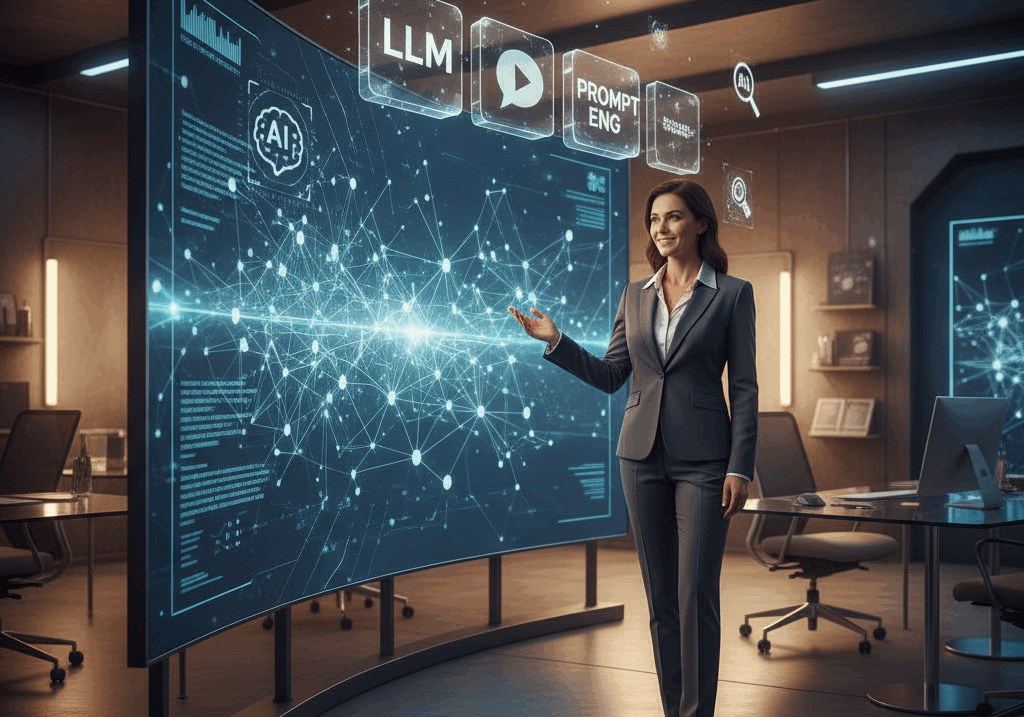LLM Engineer Interview Questions: RAG, Prompting, and Evaluation


Ace Your LLM Engineer Interview with Huru!
Practice unlimited mock interviews for free, get instant AI-powered feedback, and transform your confidence. Start Practicing Now →
Your Roadmap to LLM Engineering Interview Success 🗺️
Landing an LLM (Large Language Model) Engineer role in 2025 puts you at the heart of the generative AI revolution. Competition is fierce, and hiring managers are seeking not only theoretical expertise in transformers, RAG (Retrieval-Augmented Generation), and prompt engineering, but also real-world problem-solving and system design skills. This guide compiles the most up-to-date llm engineer interview questions—with expert strategies and detailed answers—to help you stand out.
Whether you’re prepping for rag interview questions, mastering prompt engineering interview fundamentals, or navigating generative AI interview questions, this resource will become your secret weapon.
Let’s unlock your success, one question at a time.

1. Mastering the Fundamentals: What Every LLM Engineer Should Know
To ace your LLM interview, you must demonstrate deep knowledge of core concepts:
- Transformer architecture and self-attention
- Tokenization, embeddings, and positional encoding
- Training paradigms: supervised, unsupervised, transfer learning
- Fine-tuning and domain adaptation
- Prompt engineering basics (zero-shot, few-shot, chain-of-thought)
- Common evaluation metrics: accuracy, F1, BLEU
Expect interviewers to probe your conceptual clarity and ability to apply these fundamentals in practical scenarios.
💡 Key Takeaway
Don’t just memorize definitions—demonstrate how you’ve applied core LLM principles to solve real problems. Use examples from your experience to illustrate your understanding.
2. RAG (Retrieval-Augmented Generation): Deep-Dive Interview Questions
RAG has transformed how LLMs access and generate information, making it a must-know topic for interviews in 2025. Expect targeted questions, such as:
- How does RAG architecture combine retrieval and generation?
- What are the main components of a RAG pipeline?
- How do you evaluate RAG performance (latency, accuracy, relevance)?
- Discuss the trade-offs between sparse and dense retrieval in RAG.
- What challenges arise in productionizing RAG systems (scalability, retrieval errors)?
- How do you mitigate or detect hallucinations in a RAG workflow?
Showcase your ability to not only explain RAG theory but to architect robust, scalable solutions.
| Dimension | Key Considerations | Your Interview Strategy |
|---|---|---|
| Retrieval Type (Dense/Sparse) | Accuracy vs. speed, cost, scaling | Discuss hybrid approaches & justify trade-offs |
| Evaluation | BLEU, ROUGE, real-user metrics, latency | Cite both automatic and human eval strategies |
| Error Handling | Retriever miss, out-of-domain queries | Explain fallback logic and monitoring |
Check this curated GitHub question bank →
3. Prompt Engineering Mastery: Stand Out with Advanced Techniques
Prompt engineering isn’t just about zero-shot vs. few-shot anymore! Expect to answer on these hot topics:
- Designing multi-step prompts for complex reasoning tasks
- Advanced prompt types: self-consistency, tree-of-thought, ReAct
- Prompt injection: risks and defenses
- Optimizing prompts for speed and accuracy
- Prompt A/B testing and online optimization
Explain prompt design choices using examples and reference evaluation harnesses (open-source tools that automate prompt testing and benchmarking). Hiring managers love candidates who can iterate, measure, and improve prompt performance.
🛠️ Expert Tip
Use Huru’s unlimited practice and instant feedback to prototype and fine-tune your answers to prompt engineering questions. Reflect on real interview simulations to discover subtle improvements in your communication and technical clarity.
4. LLM Evaluation: Metrics, Harnesses & Hallucination Control
Interviews in 2025 will require you to articulate how you evaluate LLMs, especially in production. Common and advanced questions include:
- What automated and human evaluation methods do you use for LLM outputs?
- How do you measure hallucination, coherence, and factual accuracy?
- Which evaluation metrics are best for summarization, QA, and generation tasks (BLEU, ROUGE, BERTScore, METEOR)?
- How do you scale evaluation for real-world and A/B test scenarios?
For hallucination control, expect your interviewer to ask about the causes (e.g., over-generalization, insufficient context) and mitigation strategies (e.g., retrieval augmentation, prompt refinement, external validation pipelines).
🤖 Q&A: What is an evaluation harness and why is it important?
An evaluation harness is a framework that lets you systematically test and benchmark LLM prompts, models, and outputs across tasks. It ensures consistency, reproducibility, and comparability in your evaluations—crucial for both research and production. Examples: EleutherAI’s lm-evaluation-harness.
Watch: Large Language Models (LLMs) Interview Questions – SivamX
5. Real-World Scenario Questions & System Design
Modern LLM interviews often shift from theory to real-world scenarios:
- Design a RAG-powered customer support chatbot—including fallback logic for failed retrievals.
- How would you detect and mitigate hallucinations in legal or medical LLM applications?
- Describe the trade-offs you’d make when scaling LLM inference for millions of users.
- How would you integrate a prompt optimization feedback loop into production?
- Architect a monitoring system for continual evaluation and retraining of deployed LLMs.
Back your answers with experience and cite frameworks, open-source tools, and learning from recent projects whenever possible.
🚀 Pro Interview Prep Tip
With Huru.ai, you can simulate system design and scenario-based LLM interviews, receive real-time feedback on your explanations, and accelerate your learning curve. Try it for free today!
6. Emerging Trends & Final Takeaways for Your Interview in 2025
- Agentic frameworks: Know about LLM agents, action planning, and compositional reasoning for next-gen GenAI applications.
- LLMs for legacy system integration: Be prepared to discuss interoperability, data privacy, and security.
- Multimodal LLMs: Understand the basics of models that fuse text, images, and tabular data (e.g., GPT-4V, Gemini).
- Continuous learning: Show a mindset for ongoing improvement—using tools like Huru.ai for regular skills upgrades.
Stay curious, be ready to articulate your approach to new challenges, and always close your answers with a reflection on impact or next steps. The best LLM engineers aren’t just technical—they’re strategic, communicative, and growth-oriented.
🌟 About the Author
Elias Oconnor is a content writer at Huru.ai, passionate about helping job seekers master technical interviews and build lasting confidence. With a background in AI engineering and interview coaching, Elias brings actionable insights and a human touch to every guide.


 Nov 04,2025
Nov 04,2025  By Elias Oconnor
By Elias Oconnor